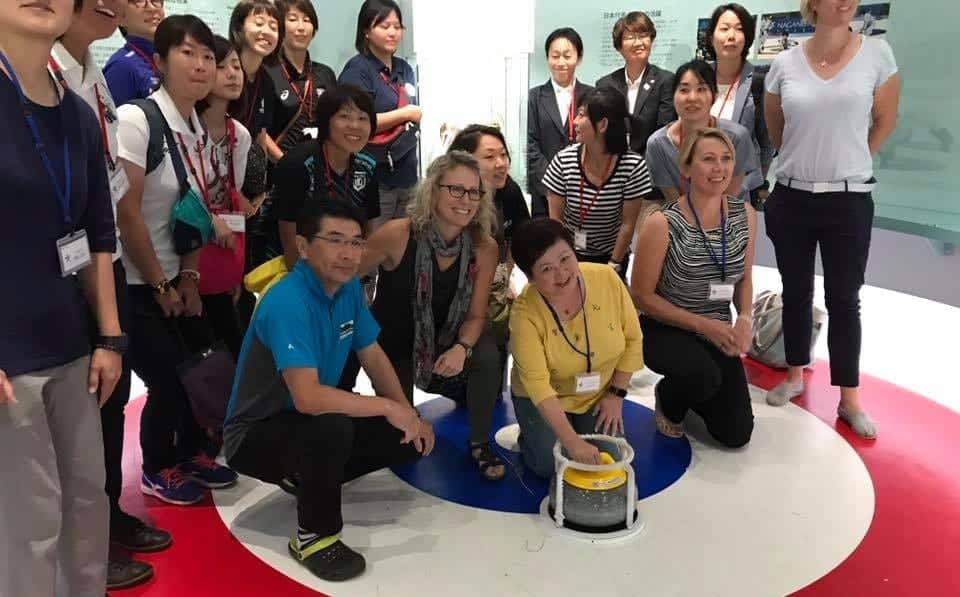Women Coaches Supporting Women Coaches
When Liz Masen, Client Director for Athlete Assessments, presented to the 2017 Japanese Women Coaches Academy, technically, it was educational; how to make the most of using their CoachDISC Profile for improved results with their coaching, but in reality it was about so much more…
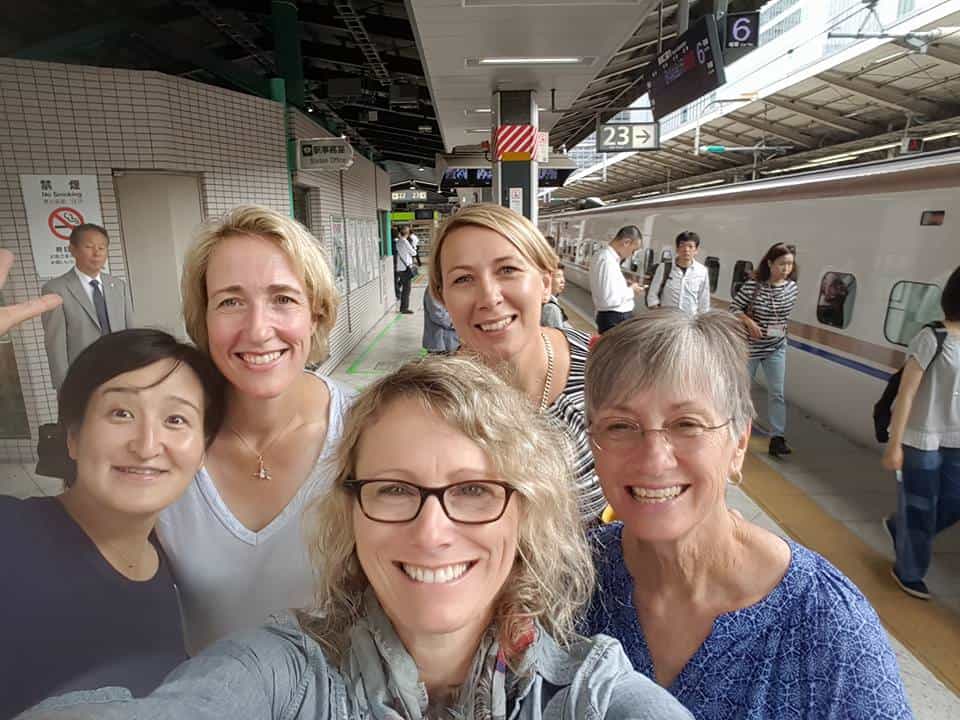
Liz was just one of four English-speaking women to present at the Academy, alongside representatives from the United Kingdom, the United States and the top women in sport within Japan. The Academy was held in Karuizawa, just an hour west of Tokyo and the only city in the world to host both the Summer (1964) and Winter (1998) Olympics. 2017 was only the third Academy, and the third year that Athlete Assessments has been involved after translating the CoachDISC Profile into Japanese in 2015 through a partnership with Juntendo University.
Presenting at and attending the Japanese Women Coaches Academy is part of Athlete Assessments’ commitment to women in sport worldwide.
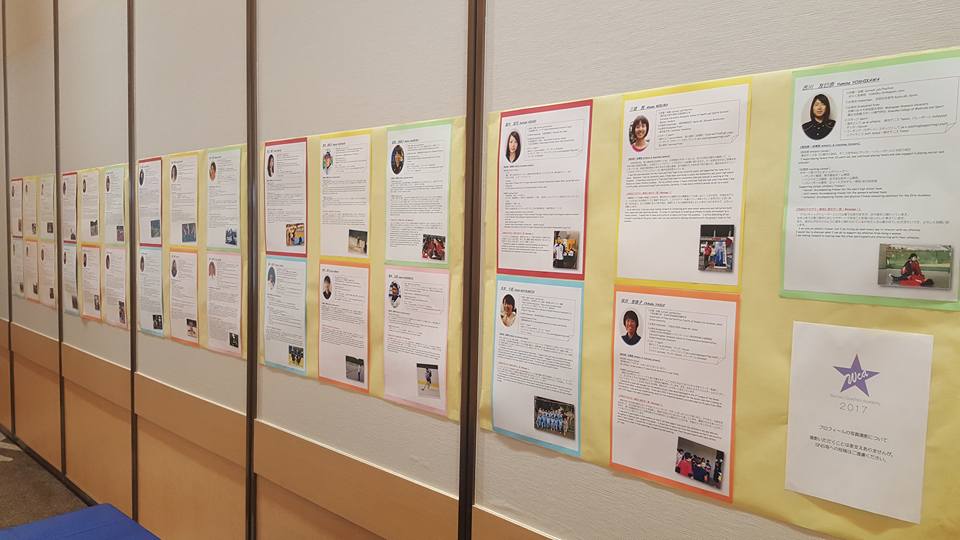
Liz says, “personally, supporting and developing women Coaches is significantly important to me. I feel that a big part of my personal mission in life is to contribute to women in sport. Being able to work with our Japanese counterparts is very inspiring. For the last eight years I’ve also worked in the United States with the NCAA Women Coaches Academy that runs three times a year and my goal is to help create an Australian version in the near future.”
In addition to building international networks and sharing success stories, access to information was of vital importance at the Japanese Women Coaches Academy. While the CoachDISC Profile assessment and Reports are translated into Japanese, the Academy was an excellent opportunity for Athlete Assessments to demonstrate the benefits of the program in action.
Working through a translator, Liz presented to an exclusively Japanese audience, she said, “my presentation was about strong relationships and clear communication as the basis for the best results.”
“We, my translator and I, explain the theory and application behind the CoachDISC Profiles, debrief the results for the Coaches and help them better understand their coaching style. Even though I work with a translator, we make the session very interactive and there’s a strong message of not only self-understanding, but also understanding others.”
Etsuko Ogasawara, Ph.D., Executive Director of the Japanese Centre for Research on Women in Sport (JCRWS) and Professor of Sports Management at Juntendo University said, “one of the inspiring things about the Japanese Women Coaches Academy is that the participants are informed about their coaching style with the use of the Japanese CoachDISC Profile. They get to know their own natural and adapted coaching behaviors and they can learn to best use this with their coaching.”
“It is really interesting to see their faces after the session that Liz presents because they feel so inspired and clear on their path forward.”
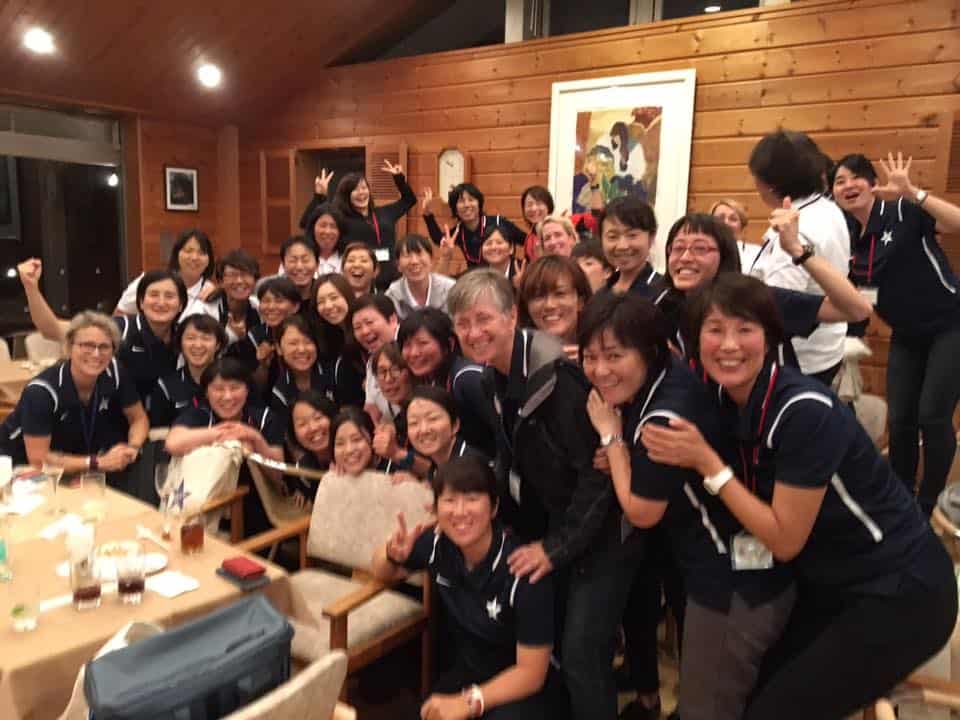
Also presenting at the Academy was Marlene Bjornsrud, previously of the Alliance of Women Coaches and fundamental to the women’s coaching movement. Marlene’s session was on the characteristics of a professional Coach. Her primary messages to Coaches was, “you don’t coach sport, you coach people” and “connect before you direct”, both messages dovetail perfectly with use of Athlete Assessments’ CoachDISC Profiles.
Liz says, “presenting alongside Marlene was really reinforcing. The Japanese Coaches were extremely engaged and fully committed to being there. They were asking smart questions and extremely welcoming of the foreign presenters. Despite the language barriers, there was a special connection with everyone being women Coaches.”
“Women Coaches in Japan are similar to women Coaches in Australia in that they often have a full-time job that may or may not be in sport and then they also coach in their time away from work.”
“There is a growing movement to recognize the value of women Coaches and support to keep them in coaching, growing the numbers of women Coaches. The Japanese women Coaches are very focused on their education and the quality of everything they do.”
“In fact, at the first Japanese Women Coaches Academy three years ago, all participants made a commitment to aim to have 50% of the women’s sports at the Tokyo 2020 Olympics and Paralympics. Importantly, they also committed to the goal of having at least one female coach.”
Explaining that the Academy is an excellent opportunity for networking Liz says, “many women are isolated within their individual sports where they may be the only woman coach or one of only a few. At the Academy, they build a network of friends from different sports to break down this isolation. It is a wonderful mix of both practical strategies to improve their coaching as well as very inspirational times, punctuated with stories of personal experience”.
In summary Marlene says, “we have far more in common than we have different. We are finding it reciprocally valuable to be in an environment where we can share our thoughts, beliefs, philosophies, hopes and our dreams.”
Echoing these sentiments, presenter Lisa O’Keefe from Sport England, best known for the ‘This Girl Can’ campaign says, “we are all trying to encourage many more women to take part in sport, whether playing, coaching or managing sport. Trips like this allow us to share knowledge and experience and collectively find ways to overcome the many challenges in this field.”
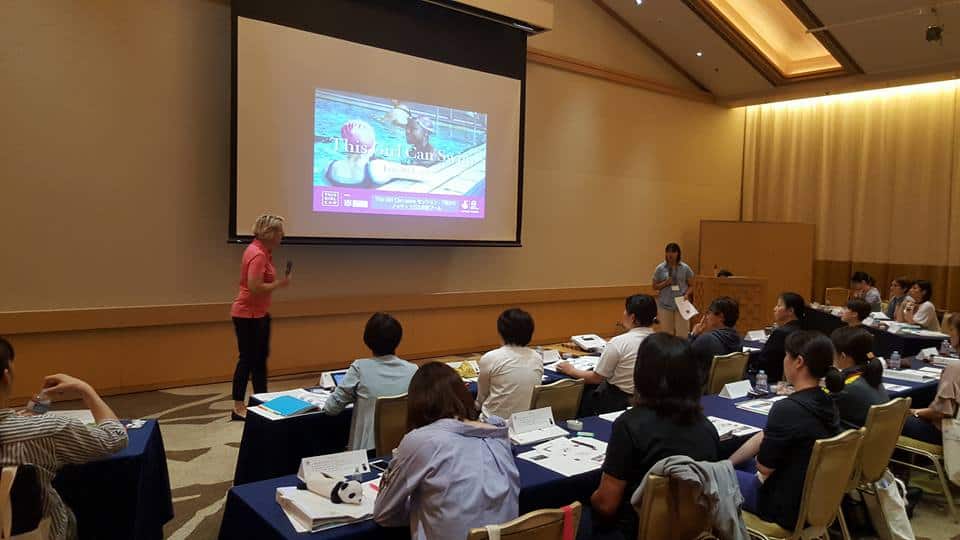
Nicole La Voi, Board Member of the Alliance of Women Coaches and Co-Director of the Tucker Centre for Research on Girls & Women in Sport at the University of Minnesota; says, “It is really inspiring to see the good work a few commitment women in Japan have done and accomplished in a very short time.”
Expanding on the achievements of the Women Coaches Academy in Japan, Liz says, “there’s a strong sense of change and strong commitment to be persistent in creating change here. Just like Australia, there’s a long way to go but with the women here, you feel a strong sense that the change will continue to happen. They face similar issues around the lack of female Coach role models, isolation, balancing other life roles and sports administration being predominantly male.”
Liz says, “additionally, women are hesitant to put their hand up for roles if they don’t feel 100% confident in being able to be successful. Research shows that across business, men will apply for a role even if they only meet a few of the selection criteria while women are hesitant, even if they have 9 of the 10 selection criteria!”
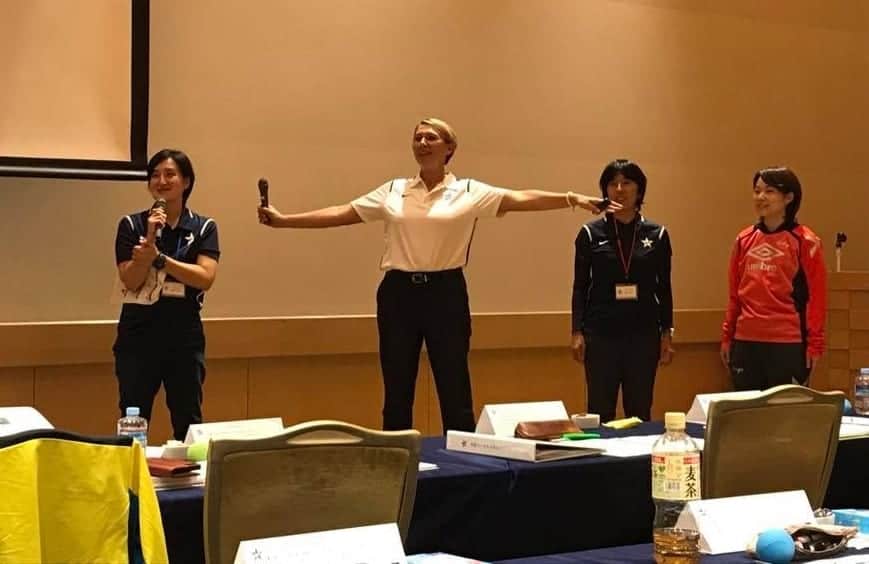
In summing up this year’s Women Coaches Academy in Japan, Liz says, “while there are obvious cultural differences between Japan and Australia, the amazing thing is that these disappear when we are at the Academy. The presenters are Japanese, Australian, American and Scottish and all of the participants are Japanese. But the culture within the Academy is very similar the world over; it’s women supporting women and fundamentally, women wanting to see other women do well.”
Where to from here…
At Athlete Assessments, we are the experts in the ‘people side’ of sport. While we are best known for our athlete profiling and sports team consulting using the AthleteDISC, CoachDISC and Sports ManagerDISC, we do more than just Assessments. Athlete Assessments Services include Sport Specific DISC Profiles, Performance Reviews, Team Consulting, Program Reviews, Keynote Speaking, Events & Professional Development Programs.
At Athlete Assessments we’re here to provide you with excellence in service and to help you be your best. If there is anything we can do to be of service, don’t hesitate to contact us.


